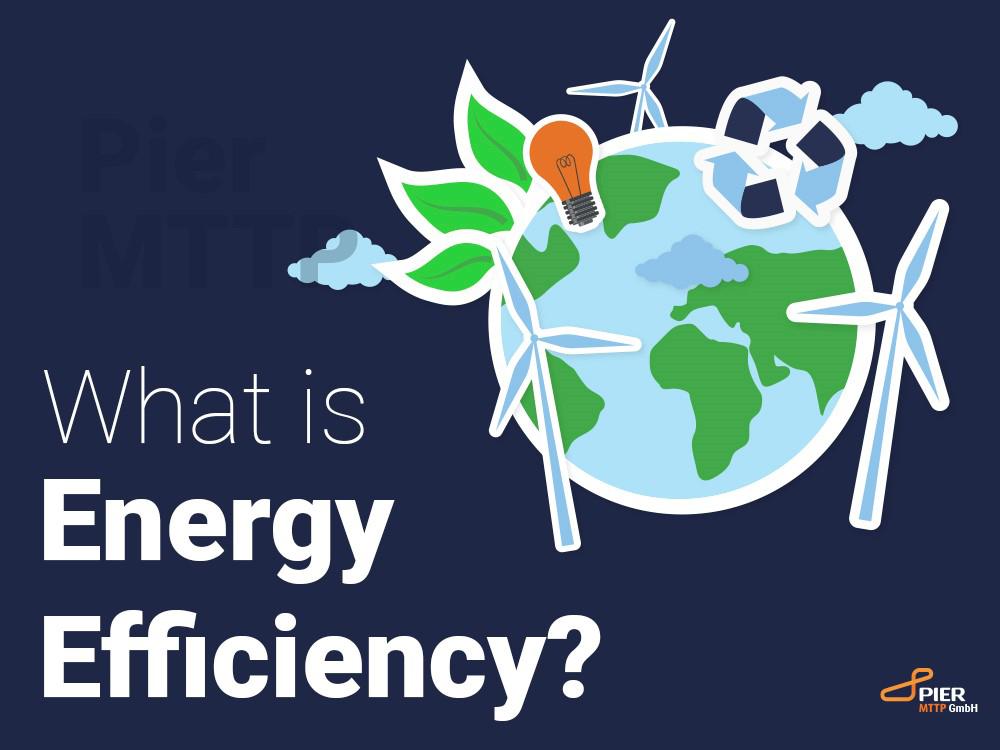What is Energy Efficiency?

Energy efficiency is becoming increasingly important today. It is an inevitable necessity to combat climate change, ensure energy security, and use resources more effectively. We depend on energy for heating, lighting, transportation, production, and many other areas. Unfortunately, our energy resources are limited, and the growing population and industrialization increase energy demand every day. This situation leads to rising energy prices, increased carbon emissions, and the rapid depletion of natural resources. In this context, the demand for renewable energy sources is increasing. However, to meet this demand, energy must be used in the most efficient way.
Understanding Energy Efficiency
Energy efficiency is a crucial concept in today’s world, where the demand for energy is ever-increasing, and the need to conserve resources is paramount. But what exactly does energy efficiency mean?
Definition of Energy Efficiency
Energy efficiency refers to the use of technology and practices that reduce the amount of energy required to power homes, buildings, and appliances while maintaining or improving their performance. It involves optimizing energy consumption to minimize waste and maximize the use of renewable energy sources. Energy efficiency is crucial for reducing energy costs, mitigating climate change, and promoting sustainable development.
Achieving energy efficiency can be done through various means, including:
- Using energy-efficient appliances and lighting: Modern appliances and LED lighting consume significantly less energy compared to their older counterparts.
- Insulating buildings: Proper insulation reduces heat loss in the winter and heat gain in the summer, leading to lower energy consumption for heating and cooling.
- Implementing smart home devices: Devices like smart thermostats and home energy monitors can optimize energy consumption by learning your habits and adjusting settings accordingly.
- Using renewable energy sources like solar panels: Solar panels can provide a significant portion of a building’s energy needs, reducing reliance on non-renewable sources.
- Conducting regular energy audits: Energy audits help identify areas where energy is being wasted and suggest improvements.
By adopting these energy-efficient practices, individuals and organizations can reduce their energy consumption, lower their energy bills, and contribute to a more sustainable future.
The Importance of Energy Efficiency and Energy Consumption
Energy efficiency aims to achieve more efficiency by reducing energy usage without lowering the quality of life or service. For industrial and commercial enterprises, it is crucial to reduce energy consumption without compromising production quantity or quality. This ensures both environmental sustainability and cost savings.
The Internet of Things (IoT) and Real Time Energy Monitoring
At this point, the concept of the Internet of Things (IoT) gains importance. IoT devices often utilize machine learning algorithms to analyze energy consumption patterns and optimize energy use. IoT aims to enhance energy efficiency by monitoring real-time data flow and minimizing human errors through smart devices. For example, with IoT, the energy consumption of a building can be continuously monitored, and unnecessary energy use can be prevented, thereby increasing efficiency.
Advantages of Energy Efficiency
The advantages provided by energy efficiency have become significantly important today. Energy-efficient industries contribute to reducing greenhouse gas emissions, lower energy consumption per unit, and promote the use of clean energy. Technologies that provide energy efficiency, such as LED bulbs, offer higher performance while using less energy.
Industry 4.0 and Energy Efficiency
The digital transformation brought by Industry 4.0 also aims to increase energy efficiency. Machine-to-machine communication, data analytics, and smart manufacturing facilities aim to optimize energy use and promote sustainable energy. This way, energy interruptions become predictable, and a continuous energy supply can be provided with energy storage systems. With IoT and data analytics, real-time energy tracking and management can be performed. Potential areas to reduce energy waste and costs are identified. The technologies offered by Industry 4.0 present great opportunities to increase energy efficiency, and the return on investments in this area is rapidly increasing.
How to Achieve Energy Efficiency with an Energy Management System?
Energy efficiency is enhanced through energy monitoring, which tracks electricity usage in real-time.
By monitoring and analyzing energy consumption in industrial facilities and factories, you can determine where savings can be made, significantly reducing your electric bill.
Energy monitors can be installed directly on the electrical panel to provide real-time insights into energy usage.
Based on energy monitor reports, energy management policies and targets can be set, and areas for energy efficiency can be identified.
Home energy monitors can help homeowners understand how much electricity their appliances consume, enabling them to make informed decisions to save energy and reduce costs.
Energy Management Systems
In the quest for energy efficiency, energy management systems (EMS) play a pivotal role. But what exactly is an EMS, and how does it help in managing energy consumption?
What is an Energy Management System?
An energy management system (EMS) is a set of technologies and practices used to monitor, control, and optimize energy consumption in buildings, homes, and industries. An EMS typically consists of hardware and software components that work together to collect data on energy usage, identify areas of inefficiency, and provide insights for improvement.
An EMS can help individuals and organizations:
- Monitor energy consumption in real-time: Real-time energy monitoring allows for immediate identification of energy spikes and wastage.
- Identify energy-wasting appliances and devices: By pinpointing inefficient devices, users can take action to replace or repair them.
- Optimize energy usage patterns: An EMS can suggest optimal times for using high-energy appliances to reduce costs.
- Reduce energy costs: By improving efficiency, an EMS can lead to significant savings on electric bills.
- Improve energy efficiency: Continuous monitoring and optimization ensure that energy is used as efficiently as possible.
EMS can be applied in various settings, including residential, commercial, and industrial sectors. By implementing an EMS, individuals and organizations can take control of their energy consumption, reduce their environmental impact, and improve their bottom line.
Energy Efficiency in Buildings and Appliances
Buildings and appliances are major consumers of energy, and improving their energy efficiency can lead to substantial energy savings and environmental benefits. Let’s explore how this can be achieved.
Building and Appliance Energy Efficiency
Building and appliance energy efficiency is critical for reducing energy consumption and promoting sustainable development. Buildings and appliances account for a significant portion of global energy consumption, and improving their energy efficiency can have a substantial impact on reducing energy waste and greenhouse gas emissions.
Some strategies for improving building energy efficiency include:
- Using energy-efficient building materials and designs: Materials like insulated concrete forms and energy-efficient windows can significantly reduce energy consumption.
- Installing energy-efficient windows and insulation: Proper insulation and high-performance windows reduce the need for heating and cooling.
- Implementing smart building technologies: Smart thermostats, lighting controls, and other smart home devices can optimize energy consumption.
- Conducting regular energy audits: Energy audits help identify areas where energy is being wasted and suggest improvements.
Appliance energy efficiency can be improved by:
- Using energy-efficient appliances and lighting: Modern appliances and LED lighting consume significantly less energy compared to their older counterparts.
- Replacing old appliances with energy-efficient models: Newer models are designed to be more energy-efficient.
- Adjusting appliance settings to optimize energy consumption: Simple adjustments, like lowering the temperature on your water heater, can save energy.
- Using power strips to eliminate standby power consumption: Many devices consume energy even when turned off, known as phantom loads. Power strips can help eliminate this waste.
By improving building and appliance energy efficiency, individuals and organizations can reduce their energy consumption, lower their energy bills, and contribute to a more sustainable future.
Energy Efficiency with PierEIS
The Pier EIS energy monitoring system can help optimize your energy consumption and increase efficiency. With this system, you can reduce your business costs and contribute to environmental sustainability by increasing energy efficiency. Pier EIS is an IoT-based smart energy monitoring platform that can be customized for every industry to reduce energy costs and improve energy efficiency. Pier EIS is the most advantageous energy efficiency investment in terms of payback period, offering direct and indirect economic benefits to its stakeholders.
With Pier EIS, you can save up to 30% on energy consumption by controlling your energy use. You can contact us or request a demo to use your energy more efficiently.
Conclusion
Energy efficiency is of great importance both environmentally and economically. With the use of technologies such as IoT, energy monitoring, and Industry 4.0, it is possible to increase energy efficiency and build a sustainable future. Ensuring energy efficiency contributes to the conservation of natural resources and economic savings.

Comments